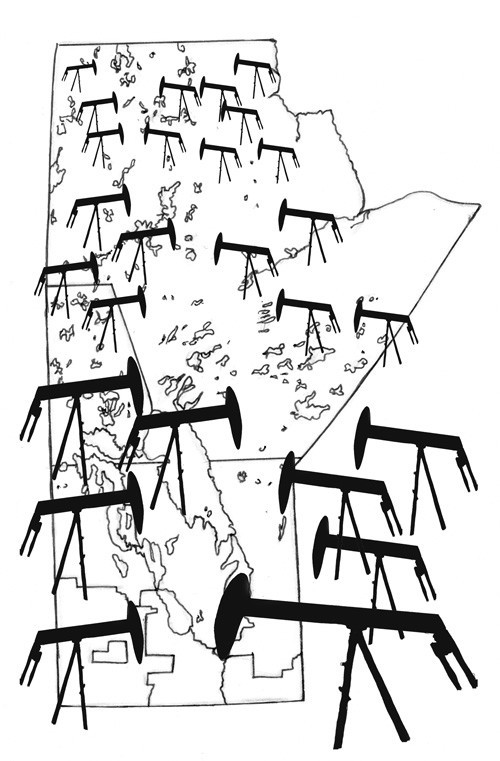In search of the black gold
Manitoba extends oil drilling programs, angers environmentalists
Oil exploration doesn’t have to end in Saskatchewan; Manitoba has oil too, and the government is looking to encourage industry development.
But environmentalists question whether Manitoba has the proper oversight to prevent serious environmental damage.
The Government of Manitoba recently announced the extension of the Manitoba Drilling Incentive Program (MDIP), which provides tax exemptions to any new well built before 2014.
The program, started in 2004, was initially supposed to end at the beginning of 2009.
“It’s a program that rewards people that explore in Manitoba,” said Keith Lowdon, director of the Petroleum Branch with Manitoba Science, Technology, Energy and Mines.
“We believe the incentive encourages drilling.”
“ If you have stronger environmental standards and public notifications then you have a better social contract.
Gaile Whelan-Enns, Manitoba Wildlands
Lowdon said that despite the fact Manitoba will not see anywhere near the kind of oil exploration seen in Alberta or Saskatchewan, the government would still like to develop the industry.
Increasing the funding to oil exploration doesn’t sit well with Gaile Whelan-Enns, director of Manitoba Wildlands, an environmental organization working to establish protected areas in the province.
Whelan-Enns believes the environmental regulations in the province are too lax. She believes tightening them will encourage companies to drill in the province by projecting a more responsible image.
“If you have stronger environmental standards and public notifications then you have a better social contract,” she said.
Lowdon said the industry, located in the southwest corner of the province, is already under tight environmental regulation, with inspectors going out to sites in areas that have a higher potential for environmental damage.
He added companies, as a matter of cost, work to avoid spills.
“All companies, due to liability, want to make sure to avoid spills.”
Whelan-Enns considers the oil exploration incentive acceptable only if the province would also provide funding for other energy development.
“They should have commitments and plans for alternative energy and a variety of environmental programs that also go to 2014. And it should be equal to what we’re spending on this,” she said.
To counter the effects of the drilling, Whelan-Enns said the government should also create more protected areas in the southwest region of the province, where most of the drilling takes place.
With the dramatic fall in oil prices Lowdon believes there will likely be less drilling in 2009 than there was in 2008.







